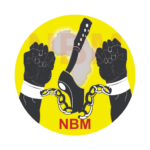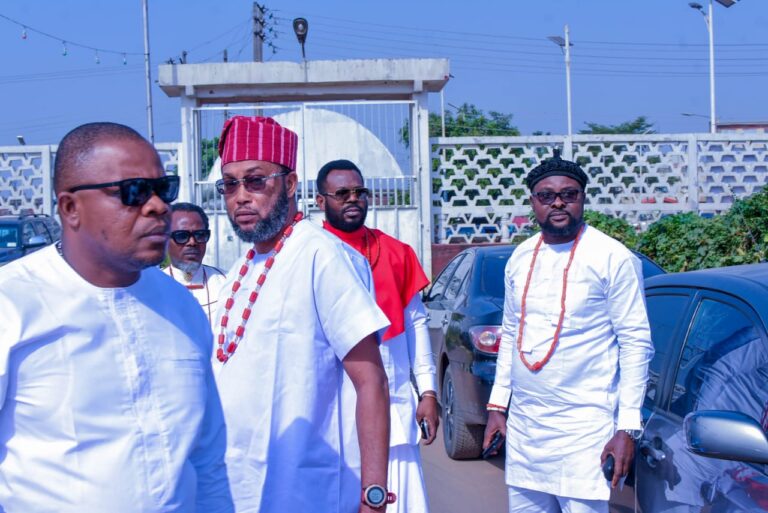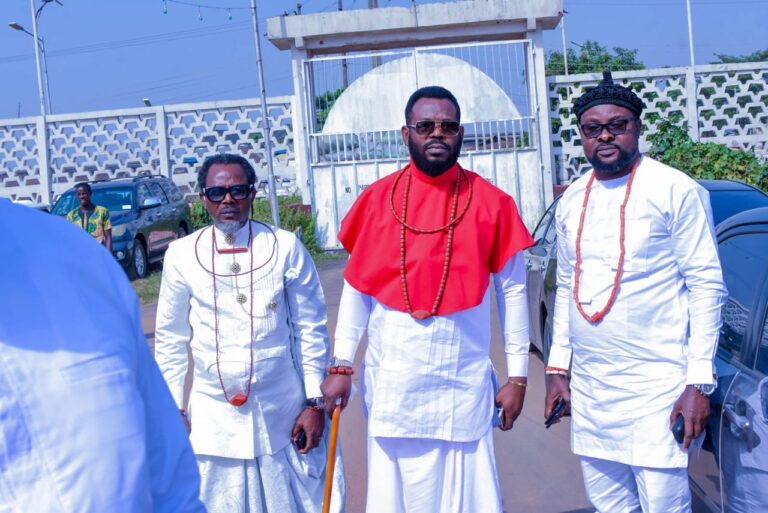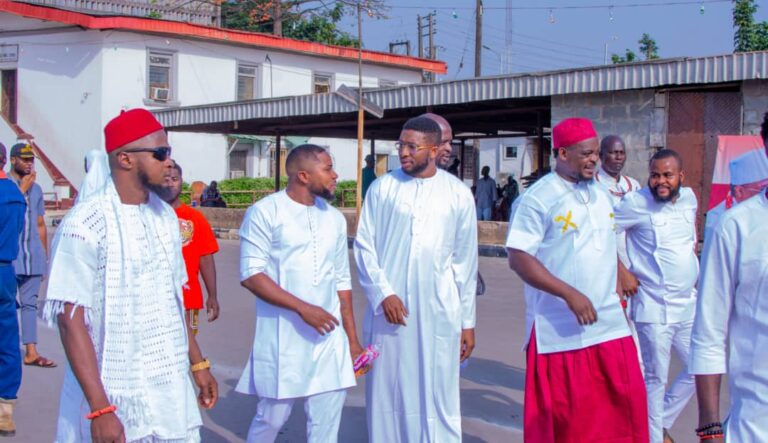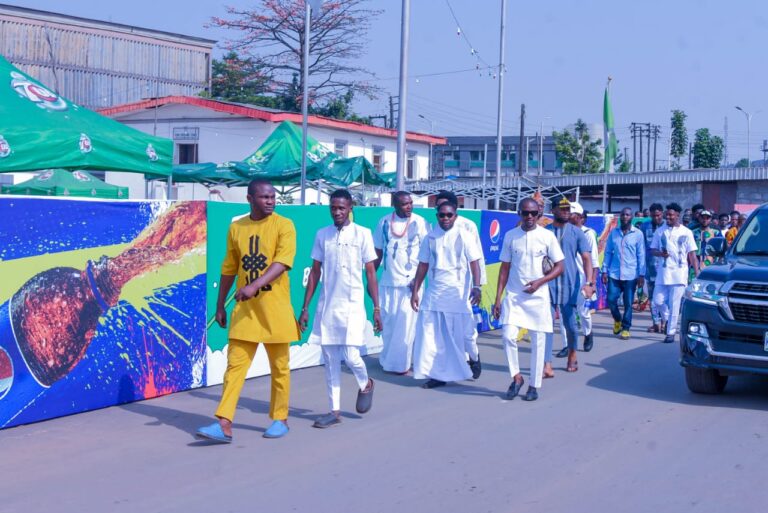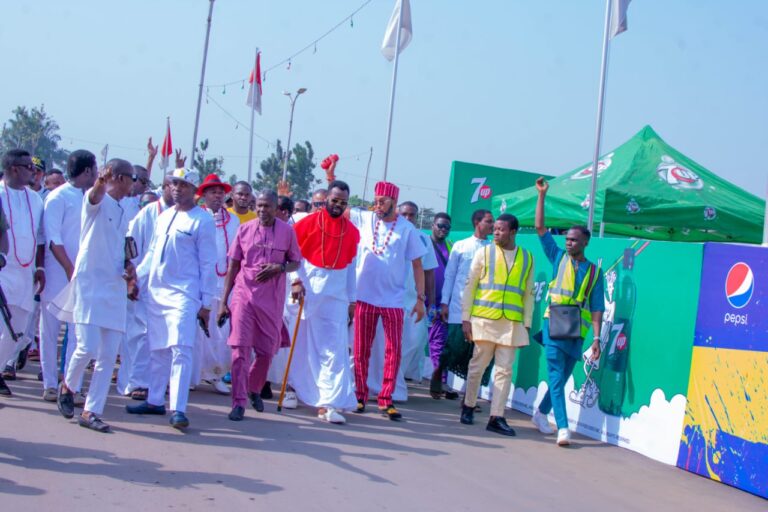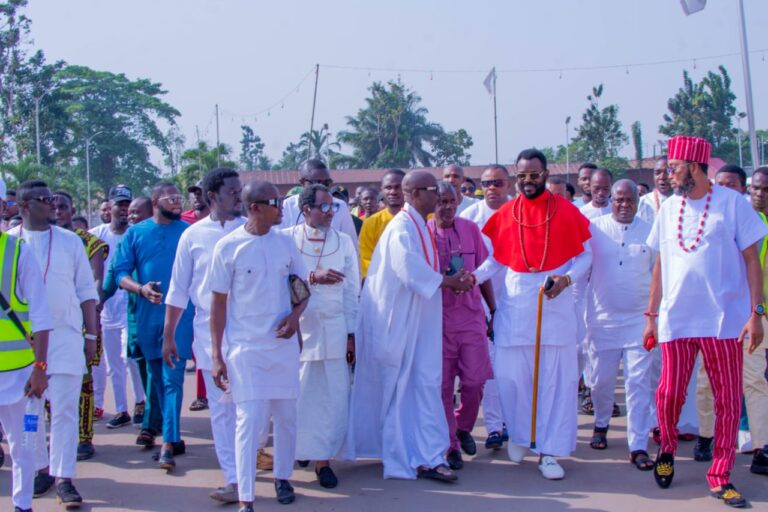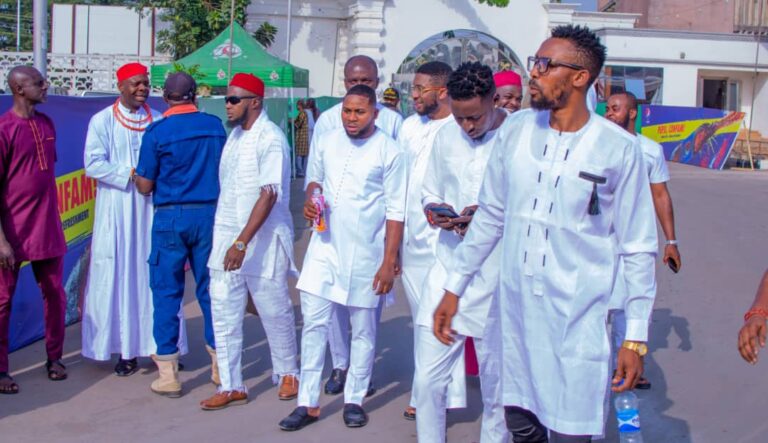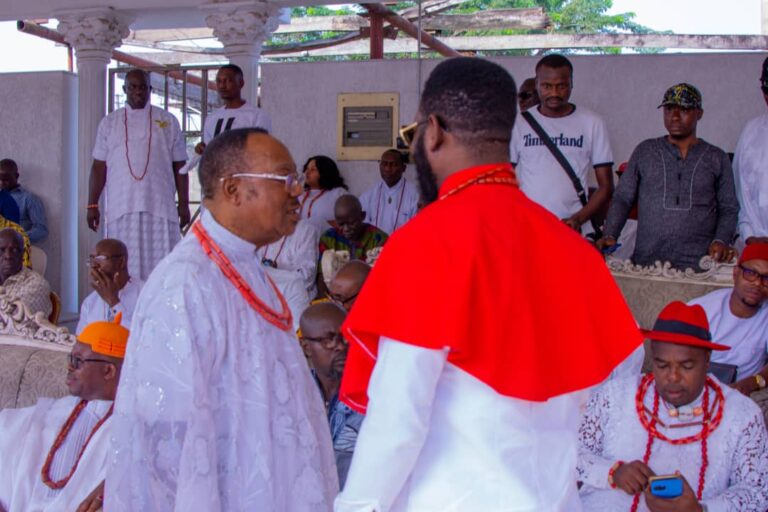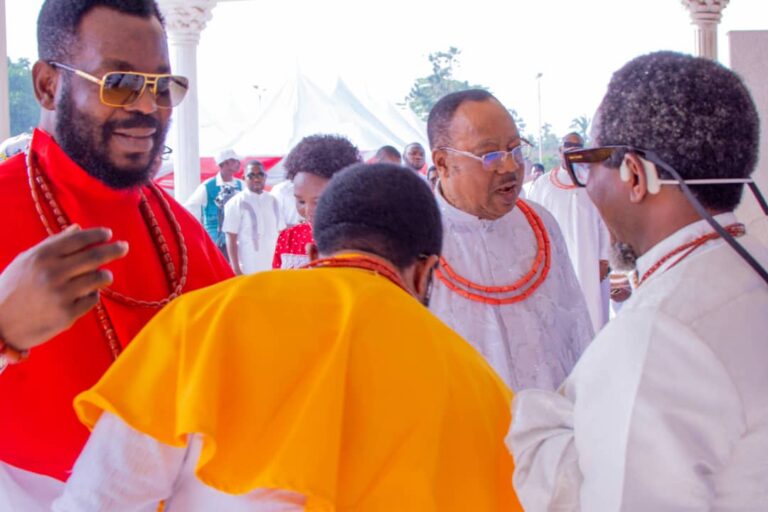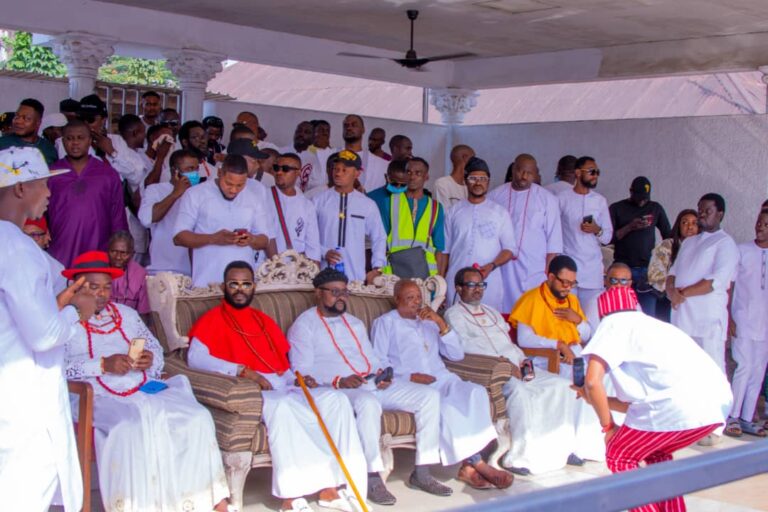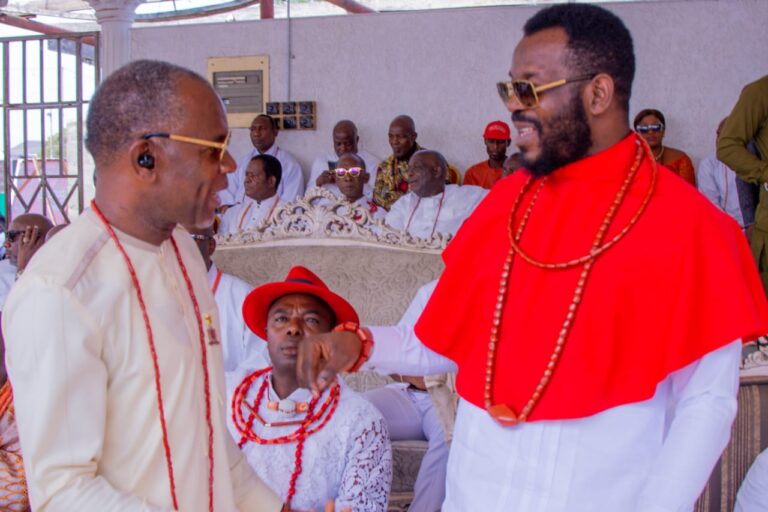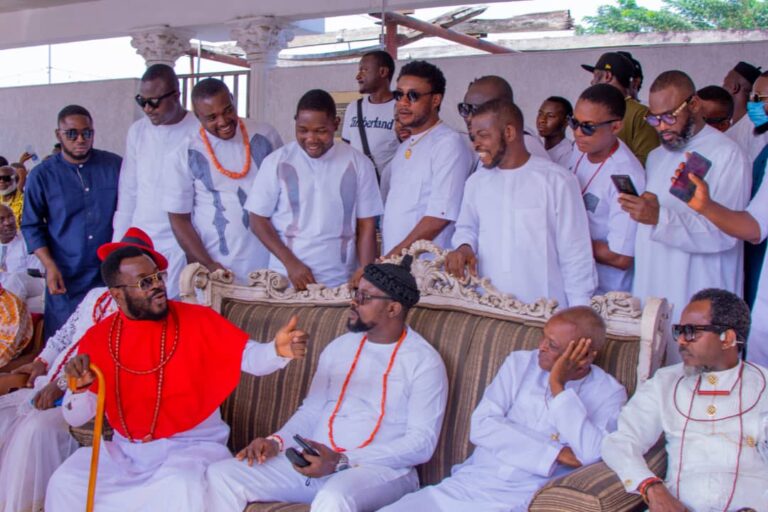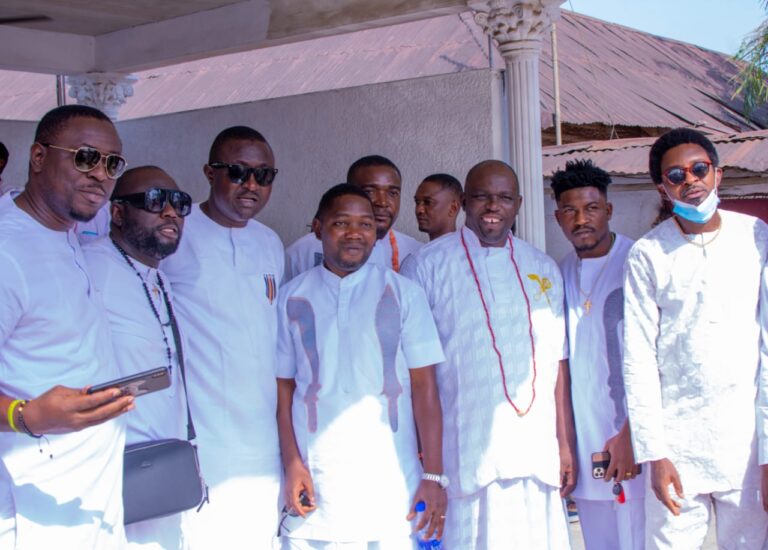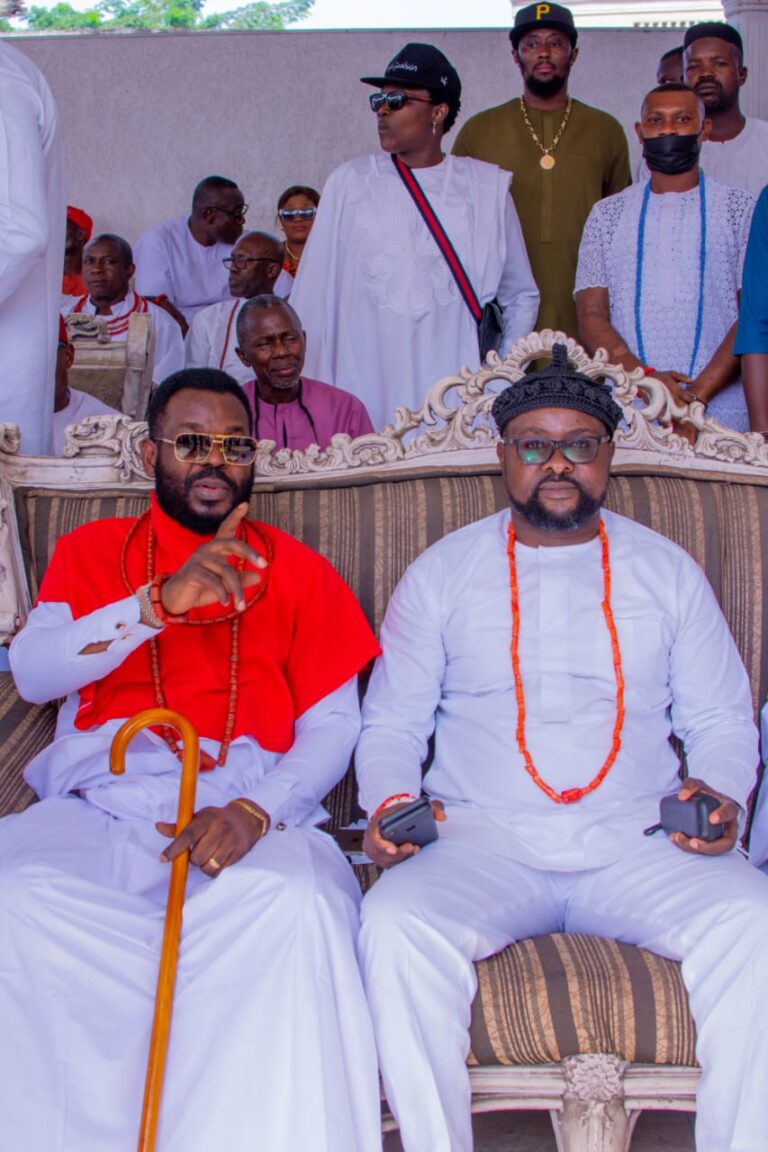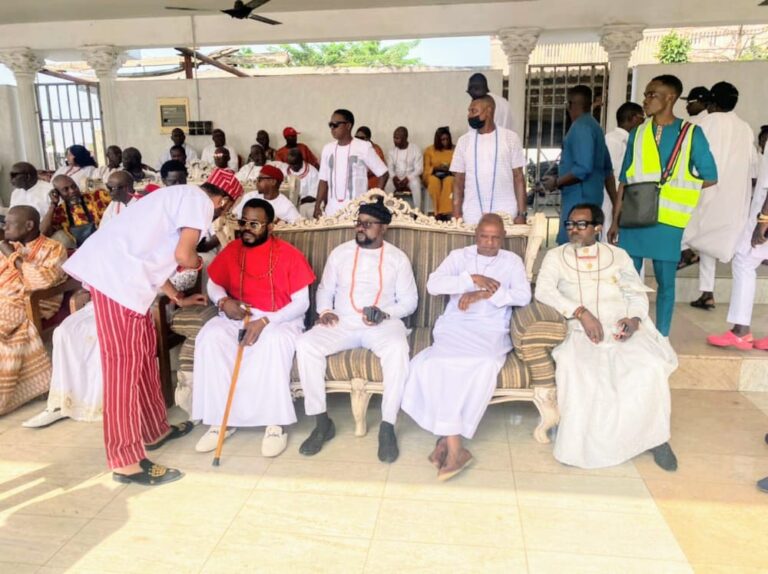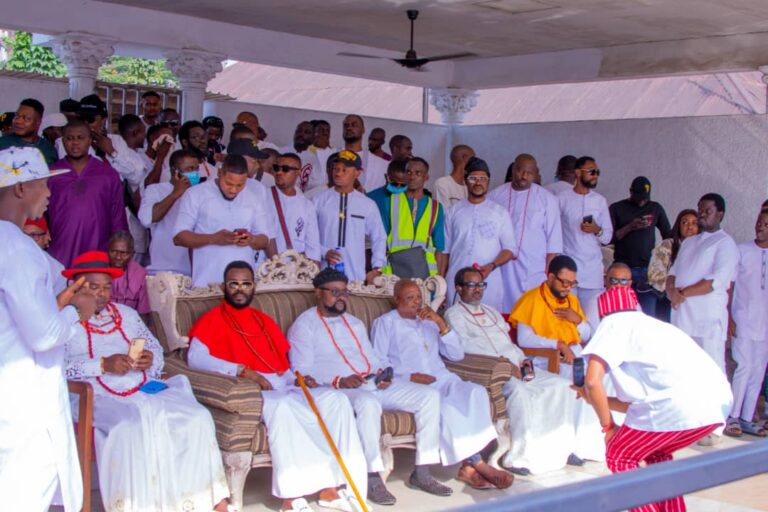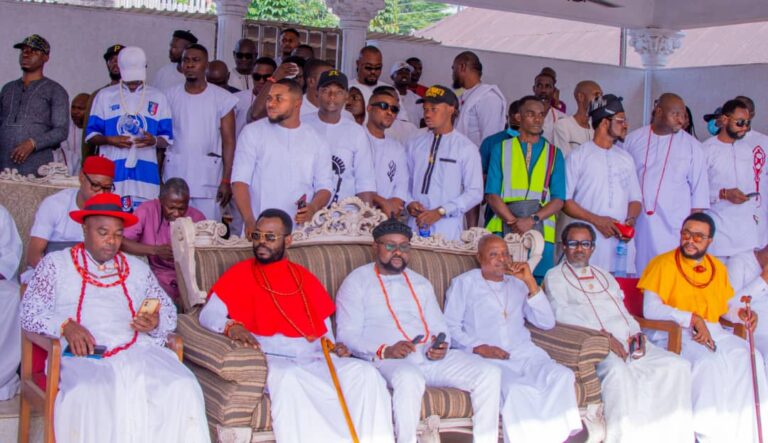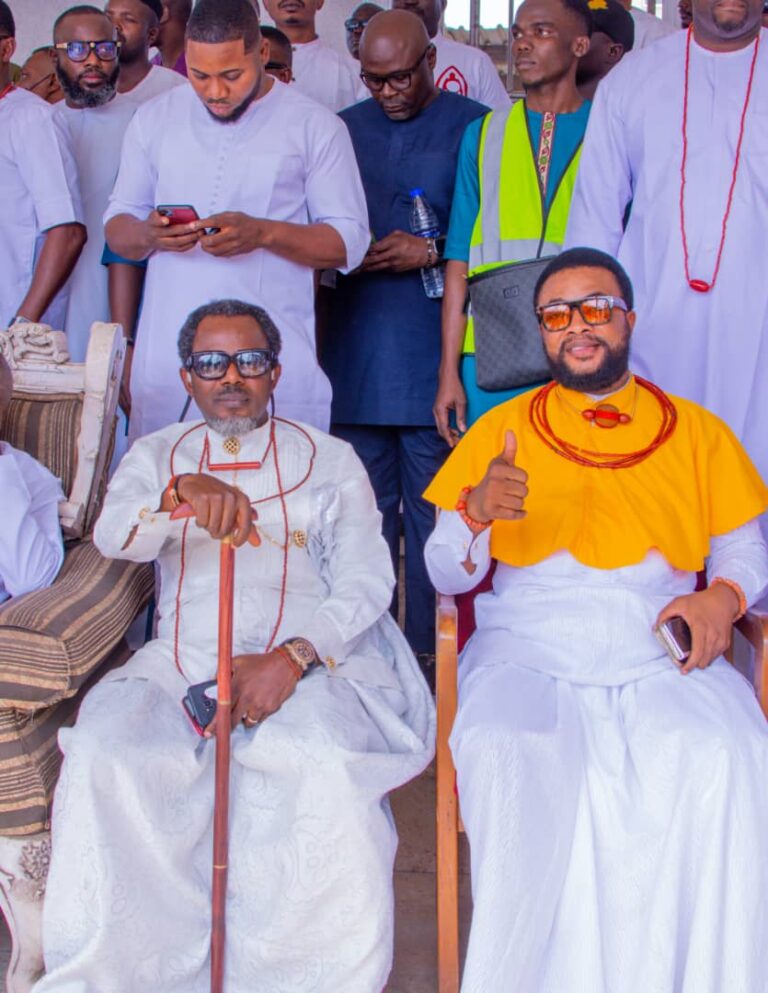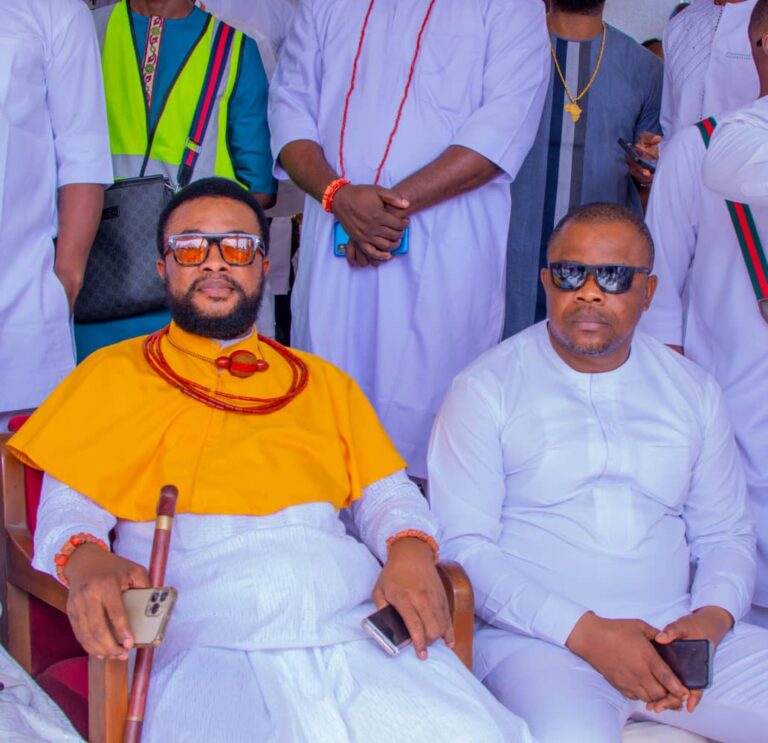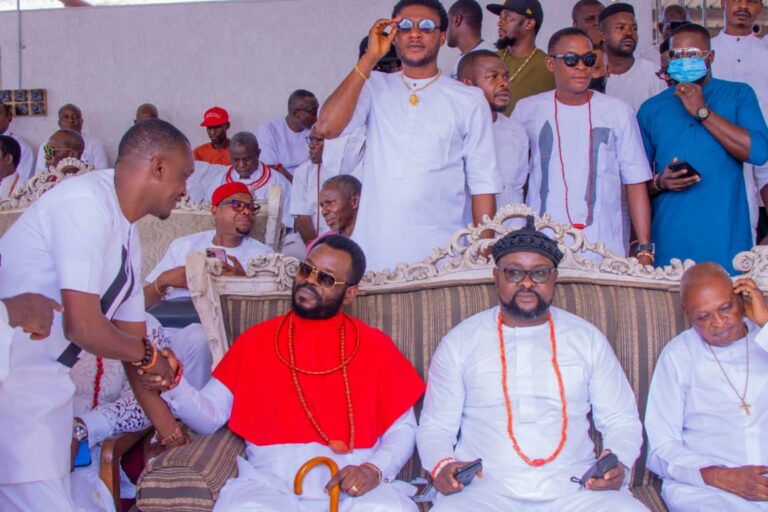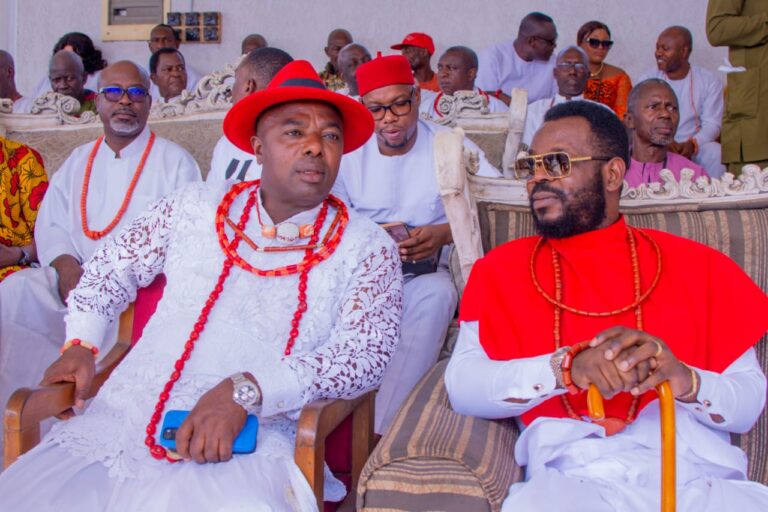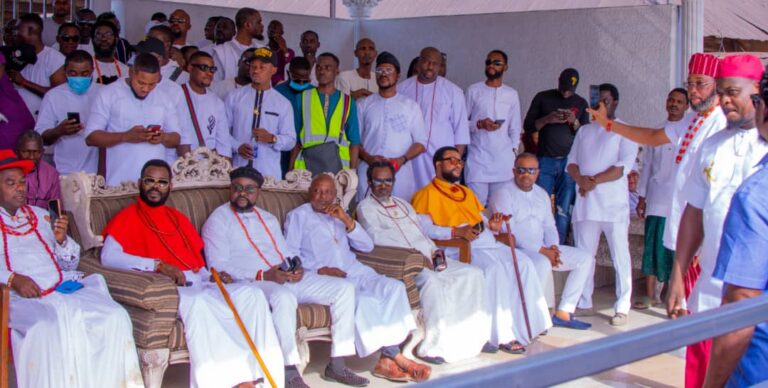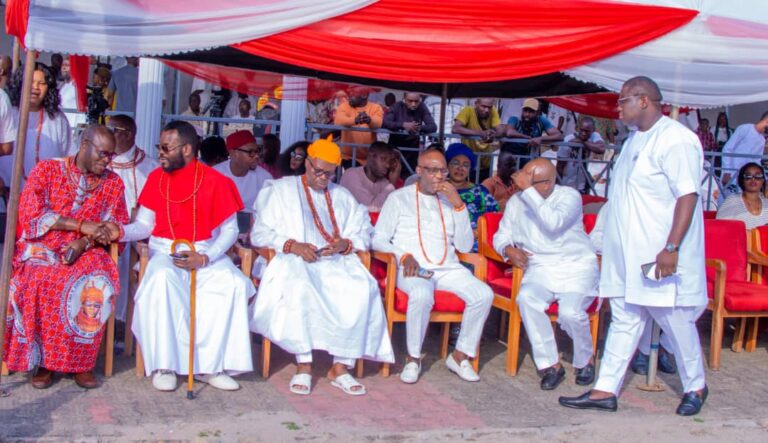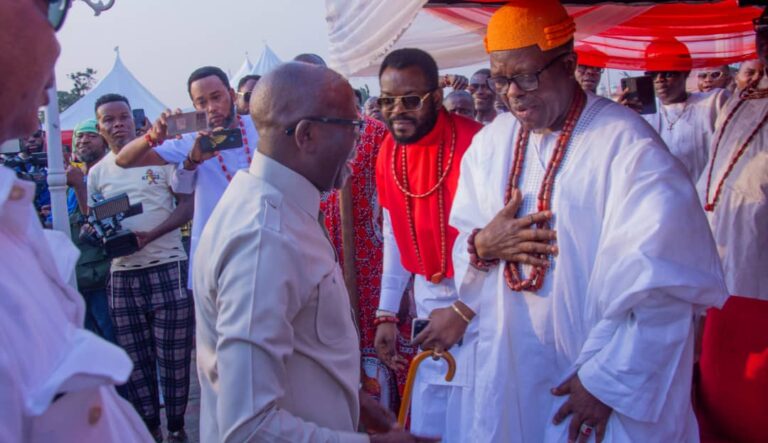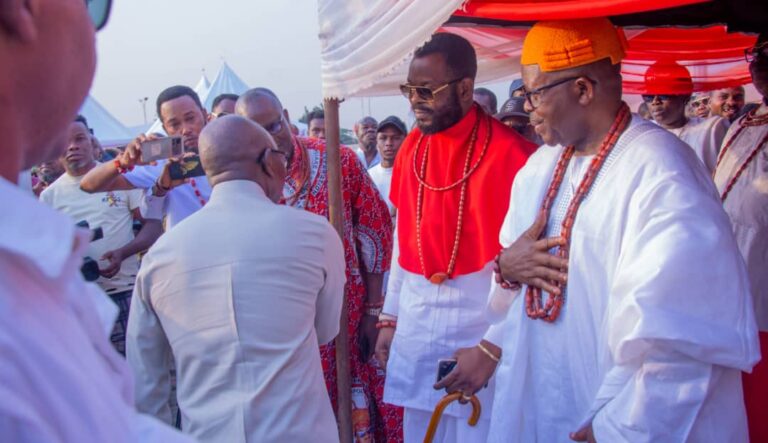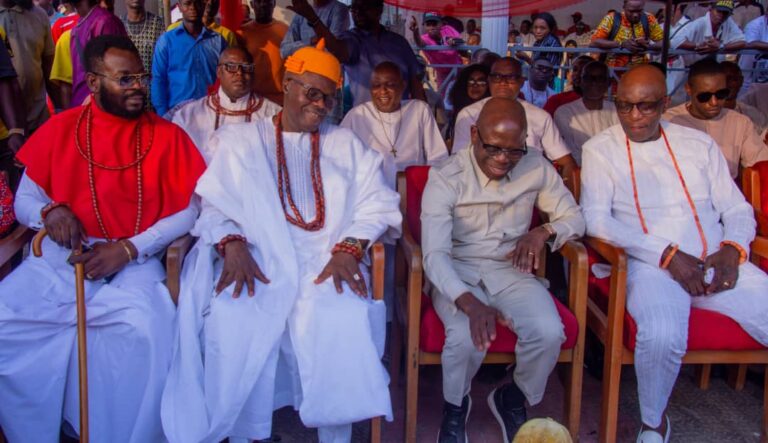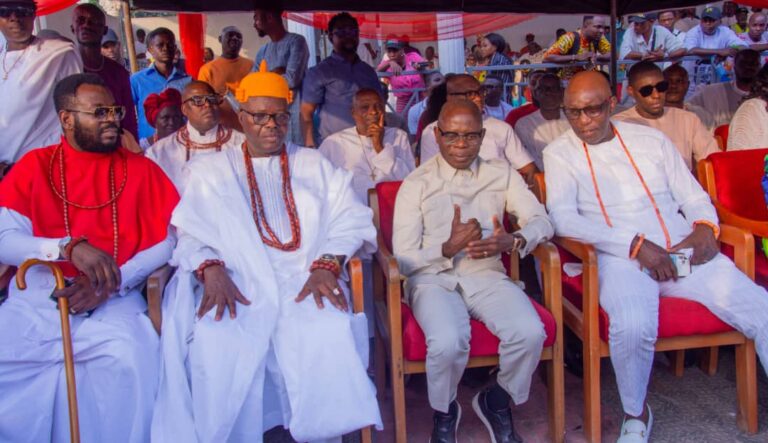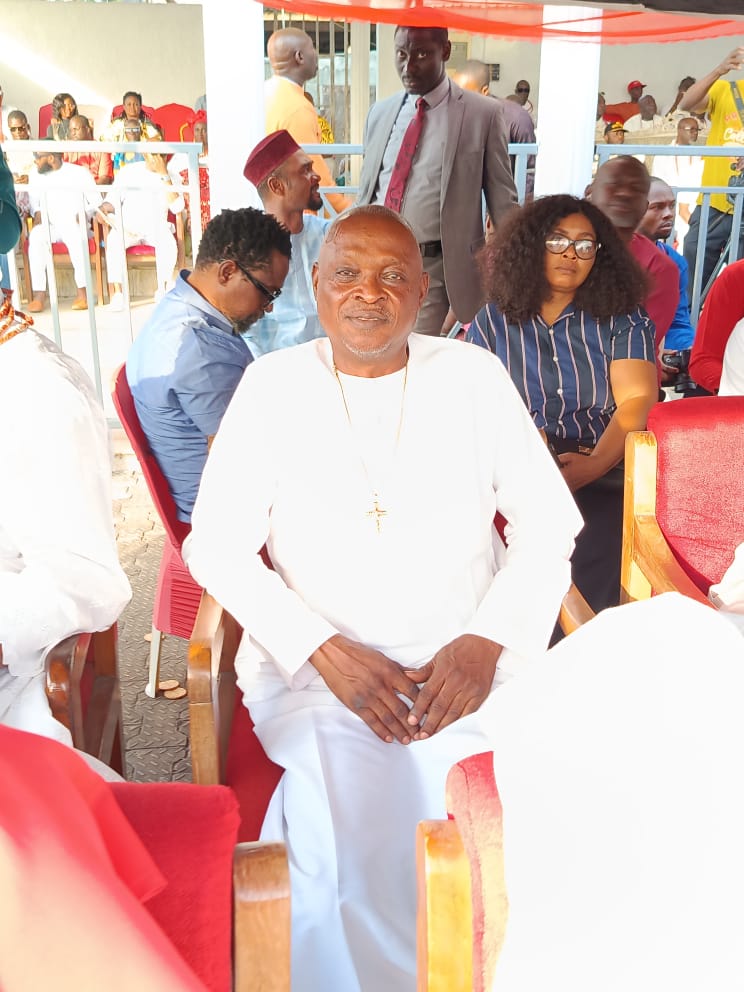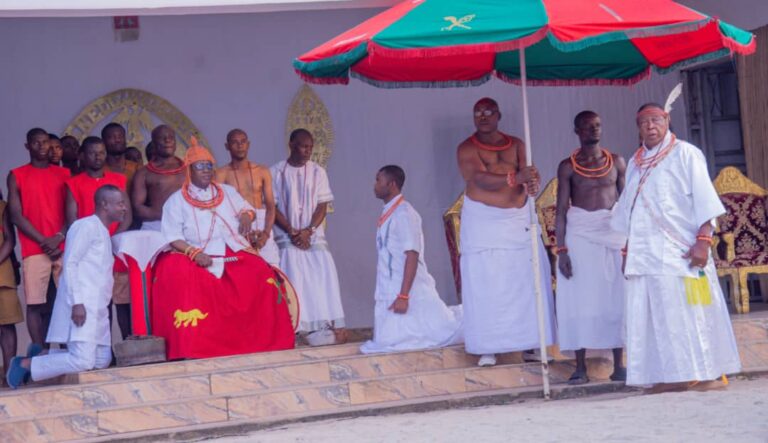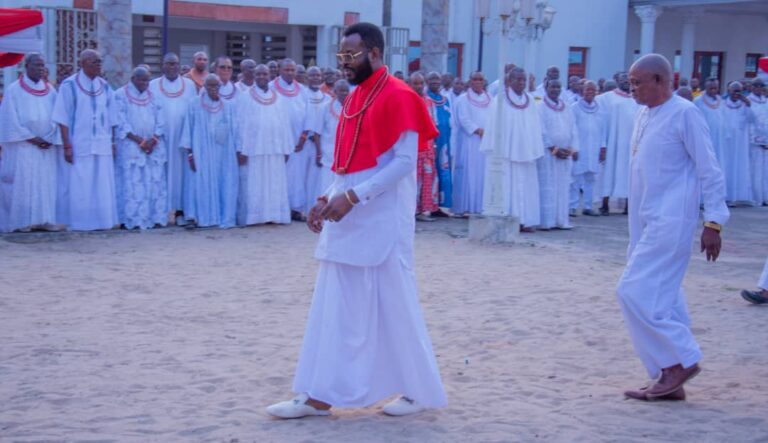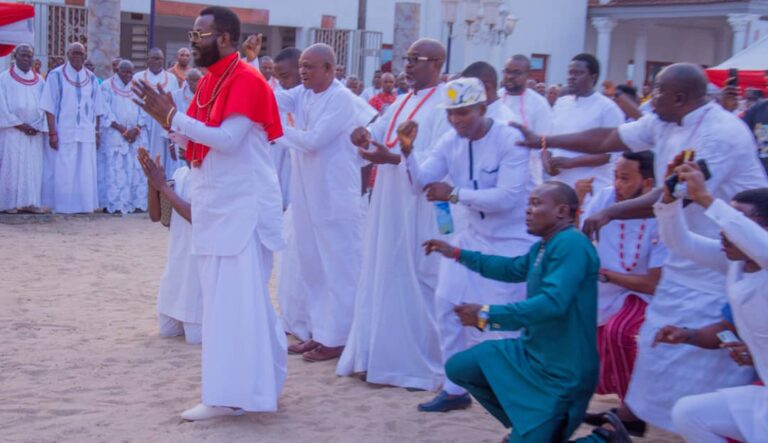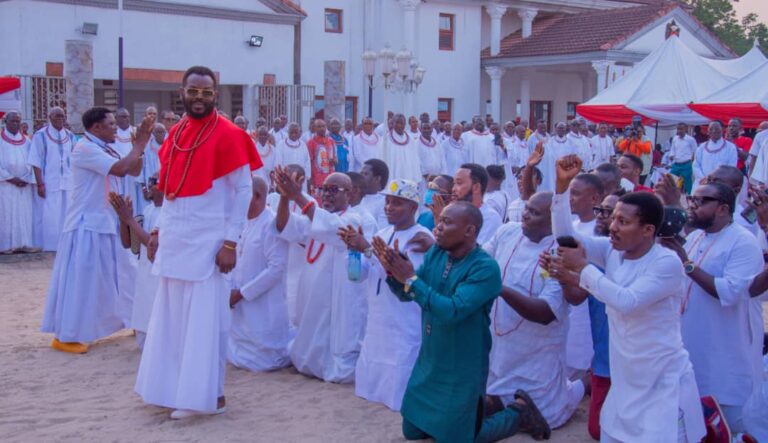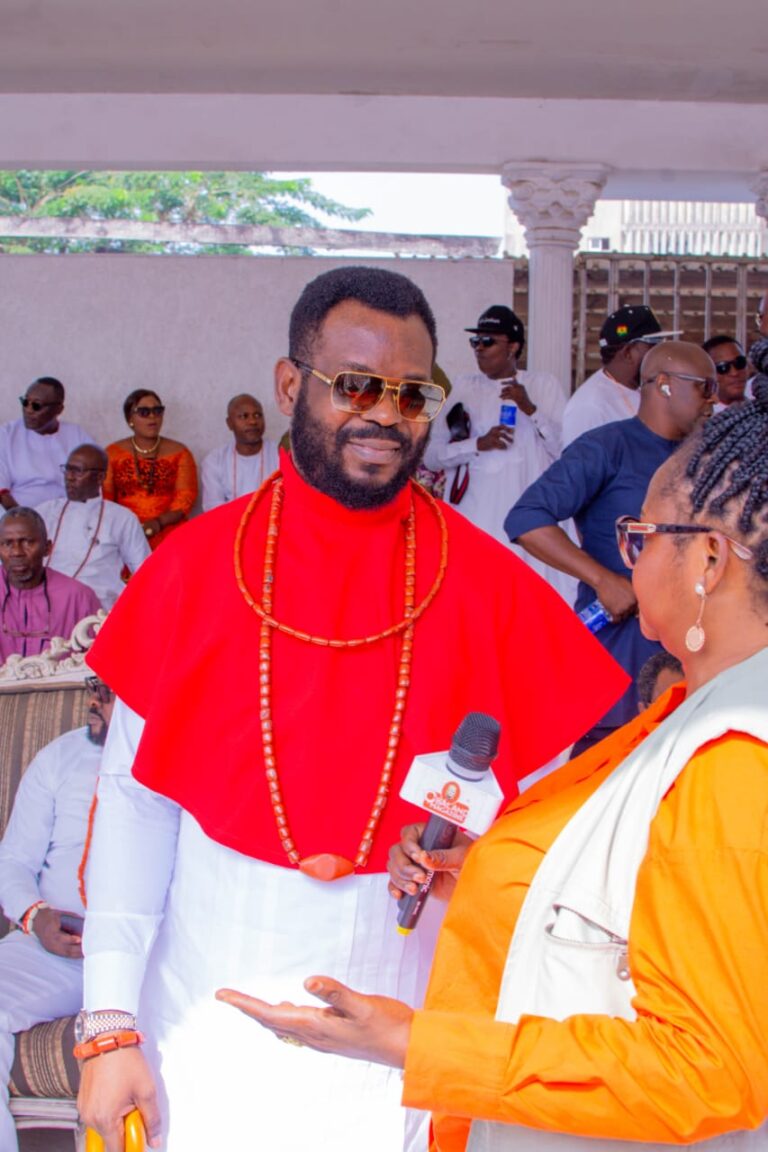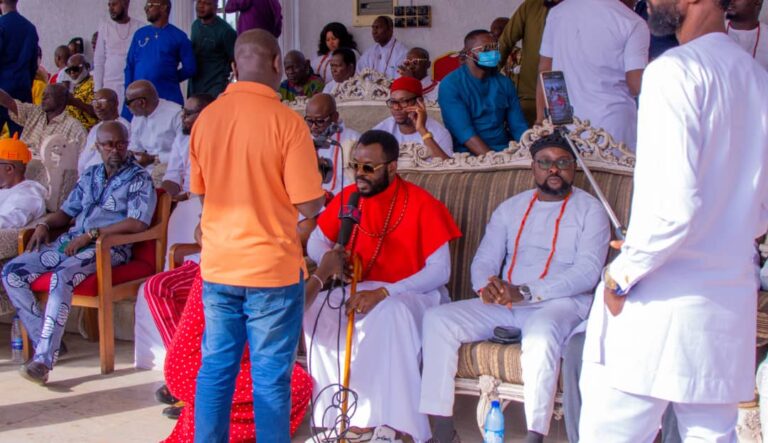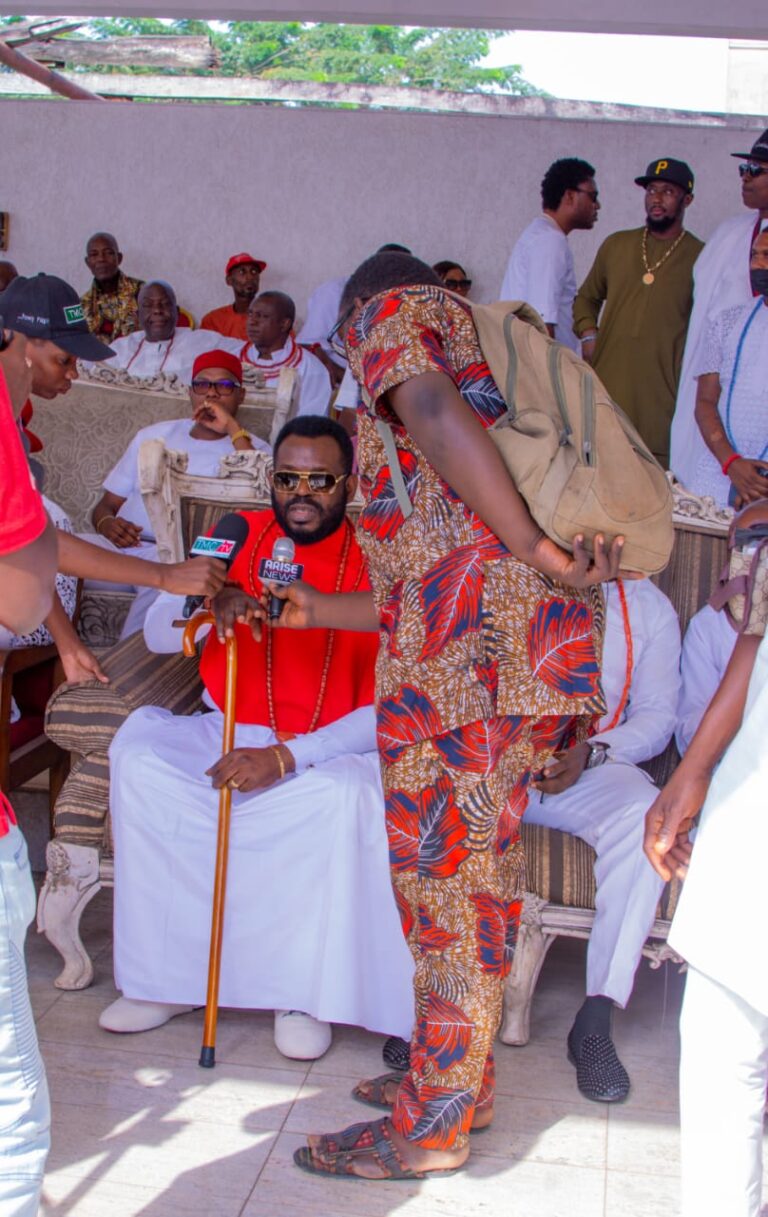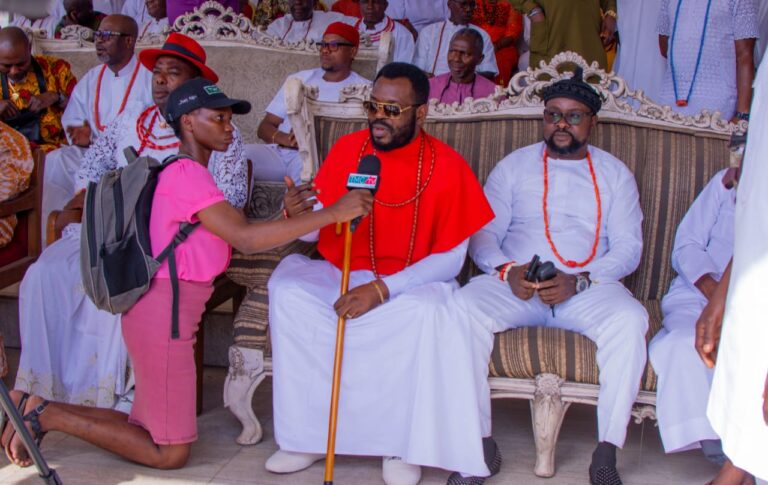IGUE FESTIVAL: THE HISTORY
Igue Festival is an end of year ceremony or thanksgiving that has its origin in the great Benin Empire. The origin of the popula r festival is said to have coincided with Oba Ewuare’s marriage to a beautiful Benin woman called Ewere. It is usually celebrated between Christmas and New Year, and includes the Oba’s blessing of the land and his people.
Historically, Oba Ewuare I, was said to have instituted the age-long Igue tradition in the land of Igodomigodo (Benin Kingdom). He reigned in Benin Kingdom between 1440 and 473 AD, and that was when the Igue Festival was instituted. Prior to that, there were other festivals and cultural activities. But Oba Akenzua II thought that these ceremonies could be put together to last for a couple of days because of the present movement of people.
The Igue was one of the ceremonies put together and called “Ugie Festival” and it was to be the terminal point of all. Not many people know about this; that within the Igue Festival, there are so many other festivals and ceremonies. But the Igue being what it is, being the only ceremony, where every Benin man and woman are expected to participate, has overshadowed all others. Little wonder the festivals are now collectively and generally referred to as Igue Festival.
The Igue proper was initiated by Oba Ewuare I, following his experiences while fighting as a prince for the Benin throne. His name was Prince Ogun, the son of Oba Ohen. He fought a very bitter battle before becoming the King, and finally getting the throne. He travelled extensively and certain things happened while he was in the wilderness. Which made him vow that if he should ever become a King, he would establish a ceremony of thanksgiving to God Almighty, as well as all the ancestors that made it possible for him to become king. When he eventually became Oba Ewuare the first, he also chose the title “Owoura” that was co-opted to “Ewuare,” which means all the evils and squabbles that happened to him have all gone; and that everything was now alright. When he came on board as king, he remembered that vow, and that was how Oba Ewuare I instituted the Igue Festival.
Ever since, subsequent Obas have held tenaciously to this great tradition. It has become the prime festival of the Benin people. It heralds the coming to an end of a particular year and the entry into another one, just like the English people have December 31st to January 1st. That is the genesis of Igue.
Some people, like the new set of Christians refer to it as a pagan festival. But there is nothing pagan about it. There is nothing fetish about the festival. It is just a thanksgiving service, but because of how Benin development was then, it was said that the ancestors decided that on that day, every member of the family should assemble and thank their head that has carried the whole body throughout the whole year, through where they access God himself, and He will answer their prayers to make the incoming year a more prosperous one.
It is exactly like the New Year festival and to symbolise it, the particular leave he found on the day he was in the jungle, he noted it. He called it ebe-ewere, which means leave of victory. So, what the people do during the Igue Festival is to give thanks to God and to their head that has seen them through and ask the ancestors to make the coming year a better one for the kingdom and the world at large.
Igue Festival is being celebrated towards the end of the year for convenience. It was not so in those ancient days. The Benins have 13 lunar months that make up a calendar year and out of these, only what is now known as February was free of any ceremony. In those ancient days, the other months were tied to one ceremony or the other, before it came to the terminal point around October. But because of the way the society is today, and the fact that people are now scattered all over the world, which prevents them from attending the ceremony though they would have loved to come home and be a part of it, they are able to take the opportunity of the end of year holidays to interact with their people. So, from the time of Eweka II after the British had taken over the government, it was so arranged that all the activities terminate in the Igue Festival.
The festival over the years has impacted the Benin Kingdom positively. During the Igue Festival, people are taught to be patriotic and to love their neighbours as themselves. During the Igue Festival, if you are a well-to-do person, your house is opened to anybody in your neighbourhood to come in and eat and drink, irrespective of whether you were friendly or not. It is a time of giving and showing concern for the less privileged in the society. It is all about free food and drinks, friendliness and goodwill.
It is a period, when the people celebrate from house to house. It brings harmony within the society. It has impacted the people of Benin positively, which is why no Benin man of any standing takes the Igue Festival lightly. The people hold it in great reverence and believe that through their prayers, God Almighty will always bless the land. But more importantly, during this festival, every society usually organises some form of combat sport like wrestling, which helps in the development of physical well-being of the people. Such areas as Uronigbe and Iyokhorionmown have special wrestling tournaments during the Igue festival and even in the Oba’s palace. So, it helps in several ways.
Importantly, Ugie-Ewere is a ceremony of presenting the sacred Ewere leaves of blessing to the Oba. The sacred Ewere leave, according to historians, signifies peace, good luck, blessing, prosperity and bountiful harvest to the royal household, families in Benin kingdom and the state at large. In accordance with the Benin tradition, the Oba receives homages from chiefs of different categories, palace functionaries as well as various palace guilds. In fact, the peak of the Ugie-Ewere ceremony is the presentation of Ewere leave to the Oba by the Ihogbe palace group led by Chief Ihama N’Ihogbe. The festival which commenced with the Ughieroba usually comes to an end with a thanksgiving service by the monarch at Holy Aruosa Cathedral, the Benin National Church of God.
The Igue Festival starts with Ughieroba rites where all the palace chiefs and functionaries pay homage to the Oba. Other activities during the festival include the Ugie-Emobo in which chiefs and palace functionaries will be in attendance at the Emobo to pay homage. This is followed by the Igue-Ivbioba in which the monarch’s descendants thank God and the ancestors for protection of the royal household and prosperity.
Igue Edohia (Festival for all Benin) is another activity where all the Benin people perform their individual worship in their various homes and this is closely followed by the Ugie Ewere (Ewere ceremony) in which all the people bring Ewere blessing to their home. During this period every male adult and family head has to make sacrifice to thank God and the ancestors as part of the tradition which is very important to all Benins.
This year’s Igue Festival was kick-started by the Oba Ewuare II with the observance of the Ugierhoba rites as part of the symbolism of the royal lineage. The Ugierhoba rite, it was gathered, is a memorial anniversary of Oba’s ancestral fathers. The rites are used to propitiate to the spirits of the transited monarchs. According to customs and traditions of the kingdom, the monarch used the Ugierhoba rite to offer sacrifice at the altar of his ancestors for divine protection, good health, prosperity and bountiful harvest ahead of the New Year. Thereafter, he dances round the sacrificial offerings at the Ugha-erhoba axis of the royal court yard with the eben to pay homage to the spirits of his ancestors.
During the festival, the revered monarch also performs the Emobo rites in continuation of the Igue festival at the entrance of the royal courtyard in Benin. Emobo rite is a memorial anniversary of the defeat of Arhuanran, the Duke of Udo by Oba Esigie after a long period of an epic battle of supremacy between the duo. The Emobo ceremonial ritual is also meant to ward off evil spirits and unwholesome activities from the land. The ceremony sees Chief Esogban, the Odionwere of Benin kingdom, perform the opening of the ancient traditional dance of Emobo ritual.
Chief Esogban dances round the Ogbelaka royal drummers at the venue of the rite four times in accordance with the tradition of the land. At the end of each dance, the Esogban raises his right hand in an unalloyed homage to the monarch who is seated on the throne of his ancestors. The Esogban concludes his dance with prayers to the ancestors at the Aro-Edion-Edo to ward off all evil spirits from Edo land.
As noted earlier, the festival which commences with the Ughieroba ends with a thanksgiving service by the monarch at Holy Aruosa Cathedral.
Consequently, this piece of write-up cannot be concluded without reference to the Neo Black Movement of Africa, herein refers to as “NBM of Africa,” and its place in the old-long tradition. The NBM is a Pan-African Organisation. It is rooted in African tradition and principle. It is a core promoter of equality for all, African tradition and customs.
Prior to this year’s Igue, no such group had been invited by the Oba to participate in the Festival. Interestingly, it was a great privilege and mark of recognition of the humanitarian gestures of NBM, when the revered Benin monarch, His Royal Majesty, Omo N’Oba N’Edo Uku Akpolokpolo, Ewuare II CFR, invited the NBM as a partaker of this year’s Igue Festival celebrations.
Also, in line with the aims and objectives of NBM, in the promotion and preservation of African heritage, the movement was invited by His Royal Majesty to learn more about the tradition and culture of Benin Kingdom. This the NBM learns and propagates to the world.
The invitation could not be unconnected with NBM’s frontline role in the propagation and preservation of African Tradition and Customs for which the Benin Kingdom is known as “The Cradle of Black Race”.
Leading the group to participate in the annual festival of the Great Benin Kingdom was the President of NBM Worldwide, Olorogun Ese Kakor (JP). He was accompanied by NBM Vice President (Eribo Emwanta), Financial Secretary (Anthony Onaghinor), Public Relations Officer (Oluwatosin Dixon) and others. They donned various eye-catching traditional regalia to the admiration of thousands of participants. Their attires truly reflected the rich cultural heritage of Africa. As aforementioned, other members of the Movement were not left out in this epoch-making event as they also displayed various traditional attires to add glamour to the Ugie Ewere ceremony.
The NBM which has its roots from the Benin Throne is an organization birthed on equality and social justice, seeking the total freedom of the black race as well as research on Africa’s culture and tradition.
It is a non-violent group whose ideology is to uplift and unite Africa which includes humanity in general. NBM is a global movement built on solid principles and is against all social vices. It stands for humanitarian public service and international solidarity of all people regardless of their race, creed, ideology, religion and location. The Movement has highly-respected, responsible and award-winning members in all spheres of life. It is not a dumping ground for all comers; hence, it condemns all forms of violence and does not seek superiority of any kind.
NBM’s goal is Pan-Africanism and so abhors black-on-black violence. The movement is committed to nation-building and making the world a better place.
Talking point of the event was the royal presentation of Ewere leaf to the President of NBM of Africa, Olorogun Ese Kakor (JP), and some other dignitaries such as Chief Adolphus Aghughu Arhotomhenia (Auditor General of the Federation of Nigeria), HRH Sule Idiaye (The imah of Somorika), Comrade Adams Oshiomole, Prince Aghatise Erediauwa, Prince Osama Erediauwa, Prince Ehioze Erediauwa at the ceremony by His Royal Majesty, Ewuare II, the Oba of Benin Kingdom.
These events marked an epoch in the history of NBM of Africa.
